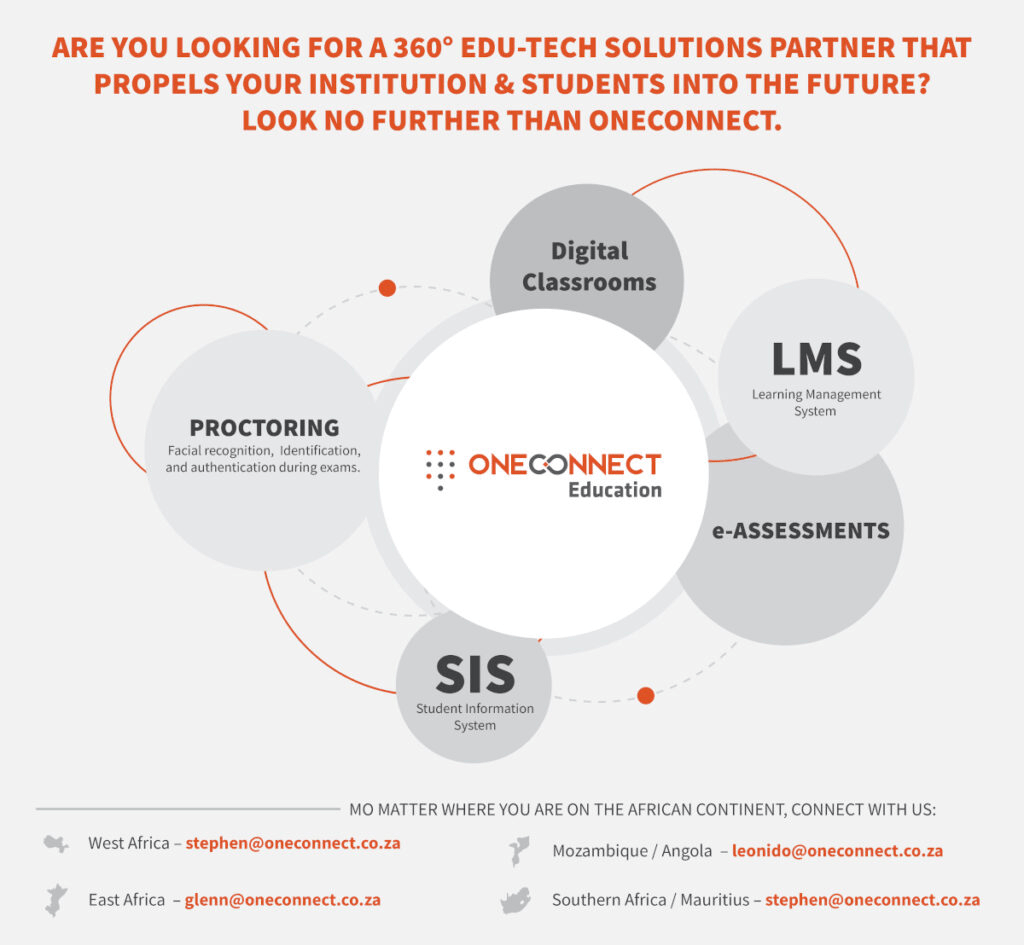Interview with Rogers Sithole : “Our goal is to create a competent and educated generation ready to contribute to the future of the continent”
OneConnect offers cutting-edge technological services and solutions to small, medium, and large businesses in South Africa and across Africa. This initiative, driven with passion by Rogers Sithole, shares with ANA his vision and aspirations for education in Africa.

Interview conducted by Dounia Ben Mohamed, in Kigali
You are participating in eLearning Africa again this year. What impact has this event had on your activities?
In the beginning, our participation was modest because we were uncertain. For the last two editions, we have invested heavily. The impact is twofold: generating a client pipeline and the real impact of the event on the continent. I admire the organizers who seek to promote the use of technology for advanced education, which aligns perfectly with our vision.
Precisely, what was your vision when you launched OneConnect in 2009?
OneConnect is an African company, born in South Africa. We understand the continent’s challenges because we have experienced them. We collaborate with partners to customize our solutions for Africa. We have offices in South Africa, Mozambique, and Kenya, and we also work in Ghana and Nigeria.
Democratizing education in Africa is my priority. Every child should have access to quality education, wherever they are. We must use technology to bridge the gap between rural and urban areas. This requires collaboration between the private and public sectors. Our goal is to create a competent and educated generation ready to contribute to the future of the continent.
What challenges do you face in « democratizing » eLearning in Africa, and how do you address them?
I grew up with the continent’s difficulties. I attended school in challenging environments and understood the importance of education. I am here today with you because someone sacrificed for me to attend school. So, I understand these challenges. I am in a very good position to understand the solutions we need to bring to the continent because I have lived them.
Therefore, as Africans, we develop our solutions; as a « connected » entity, we collaborate with different partners worldwide. It is important for us to customize these solutions for Africa, and that is what we do.
Practically, where do you develop these solutions, how, and with what impact?

Our headquarters is in South Africa, but we also have an office in Maputo, Mozambique. We have had an office in Nairobi since 2013 to serve the Southern African bloc. We also work in Ghana and Nigeria.
For us, it’s about education.
We support what we call lifelong learning. We support this learning journey.
We collaborate with universities on the continent, schools, governments, and even companies that provide training. We operate in the field of education, teaching, and learning, throughout the entire educational cycle.
To generalize eLearning, the role of the public sector is essential. How can we convince traditional education to invite technology into schools?
Initially, it was difficult to explain the importance of digital in education. It is essential to involve decision-makers to overcome challenges because quality education is the key to developing the economy and solving other issues like health.
UNESCO has indicated that for Africa to meet its objectives, it will need to find 15 million teachers. This points to the need for teacher training. Where will they come from? We need to train and value them.
AI is transforming the world. 80% of current jobs will disappear. How can eLearning help Africa meet this challenge?
In Africa, we need jobs. And let me tell you, our governments, public officials, and teachers are afraid of change. We need to understand that technology, AI, will not eliminate jobs but create new ones. Today, with AI, we can generate a course. If you are a teacher, you no longer need to formulate your course. AI can do it for you. But your job now is to evaluate the quality of what has been produced and focus on the distribution of teaching and learning, which is your primary mission. Instead of saying no, we do not want this AI to take our jobs, we should adapt to it. We need to train ourselves to understand these jobs. We need to embrace innovation and technology to open up possibilities for job creation.
To conclude, let’s talk about your future. What are your perspectives, ambitions for next year, priorities, and challenges?
My perspective, vision, and hopes remain unchanged. My goal is to democratize education in Africa. Even at my level, on a small scale, we must do it. Democratize education. What does that mean? We must ensure that every child on the continent has access to quality education, regardless of where they are, including in rural areas. If we ask governments and companies to build schools, it will be very expensive, not to mention the environmental impact. But we can do it with technology. We can use technology to bridge the gap between urban and rural areas so that both can have access to the same quality education. If we can do that, we will create a generation of educated and competent individuals who will be useful to our continent and will be the future of our continent. We are known as the continent with the most resources, we have a young population. But from an educational standpoint, in terms of quality, we are not at the same standard as the rest of the world. And we need to change that. The only way to do it is if private entities and public entities come together in partnership to focus on democratizing education for the country. I continue to advocate for this. And we will continue to invest in the continent to ensure that we can democratize education. That is my vision.






